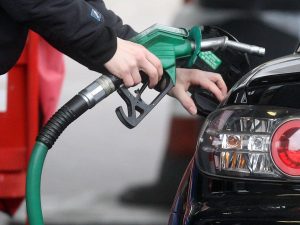
The work of the non-governmental National Association for Humanitarian Demining has been launched in Ukraine, its head Meri Hakobyan said on Monday during the presentation of the association.
“The key mission of the association will be to promote the rapid and professional clearance of Ukraine’s territories of explosive hazards with the involvement of all interested stakeholders, including mine clearance equipment manufacturers, accredited demining operators, and government agencies,” she said.
Among the main directions of Hakobyan’s activity she singled out joining efforts and communication with state authorities on humanitarian demining, development of recommendations on improvement of normative-legal support in the sphere of humanitarian demining, assistance in improving the quality of professional training of industry specialists, development, discussion and making proposals on reasonable types of classifiers, standards, operational reliability and safety of demining, raising public awareness,
The primary task of the Association will be the preparation of the state professional standard of the new profession “Humanitarian Demining Deminer”, as well as the creation of a system and methodology for training such deminers, preparation of amendments to the law of Ukraine on “Mine Action” and communication with the media.
As Deputy Minister of Economy Ihor Bezkaravaynyy emphasized, the National Association for Humanitarian Demining is an initiative coming from business and civil society and may become a precondition for the formation of a demining market in the state.
In particular, he said, there are currently 32 humanitarian demining operators in the country, of which about 20 are Ukrainian in the status of Limited Liability Companies.
“This shows that the Ukrainian business goes into the sphere of demining, is ready to invest resources, money, to develop in this direction and develop the market,” – said the Deputy Minister.
In turn, the Ambassador of Japan in Ukraine Kuninori Matsuda said that one of the priorities of the Japanese government is precisely the provision of assistance to Ukraine in the field of humanitarian demining.
“We have been working with the Cambodian demining center for 25 years. We have developed many methodologies and will share our own developments and technologies with Ukraine … Japan will support the entire Ukrainian demining sector until the last mine in Ukraine is cleared,” he said.
He recalled that the Japanese government has already transferred to Ukraine 30 special tractors, dozens of wagons and pickup trucks to locate mines and another 22 special mine clearance vehicles will be transferred in June this year.
Ruslan Beregulya, head of the Main Directorate of Mine Action of the Defense Ministry, said that 950 people have been affected by explosive objects since the beginning of the full-scale Russian invasion of Ukraine. Of these, 289 have died and 661 have been injured or maimed.

Modular (small) filling stations are united within the National Association of Petrol Retailers to protect their interests and work out the creation of uniform rules for the placement of facilities in the event of existing contradictions in the legislation.
“Thus, the small business sector in the petroleum product market is trying to protect its legal rights and stop the obstruction of its activities by local regulatory authorities,” the association said in a press release.
According to the association, at present, the current legislation contains certain features of the legal regulation of the manufacture, certification, establishment and operation of small filling stations. In particular, small filling stations are not classified as high-risk facilities, they are not required to carry out an environmental impact assessment on the environment, they are not classified as real property.
The association said law enforcement and regulatory agencies do not take into account the peculiarities of the legal status of modular filling stations, which leads to numerous restrictions in their economic activities and relevant losses to this sector of small business.
“The members of the association emphasize that there is a contradiction in the interpretation of the provisions of the current legislation in the field of licensing of retail trade in fuel by the territorial agencies of the State Tax Service of Ukraine, which creates obstacles in the implementation of economic activities and affects the overall shadowing of the small filling station sector,” the association said.
According to the association, tax authorities unreasonably regard small filling stations as construction facilities and require from them acts of commissioning and readiness for operation of the facility.
“Such requirements of the tax authorities contribute to the monopolization of the fuel market in Ukraine and hinder its development on the basis of transparent economic competition. Therefore, the members of the association demand the creation of unified regulatory, production, construction, administrative and procedural bases for the placement of small filling stations,” the association said.
First of all, this concerns the formulation of clear explanations regarding the regulation of the activities of small filling stations and the definition of limiting list of documents required for licensing retail trade in fuel in accordance with Part 38 of Article 15 of the law on state regulation of the production and turnover of ethyl alcohol, cognac and fruit alcohol, alcoholic beverages, tobacco products and fuel.
The association draws the attention of the Verkhovna Rada Committee on Finance, Tax and Customs Policy to these problems of regulatory support in order to obtain substantiated professional explanations and recommendations. “This will make it possible to obtain uniform transparent principles for licensing retail trade in fuel for all market participants,” the association said.